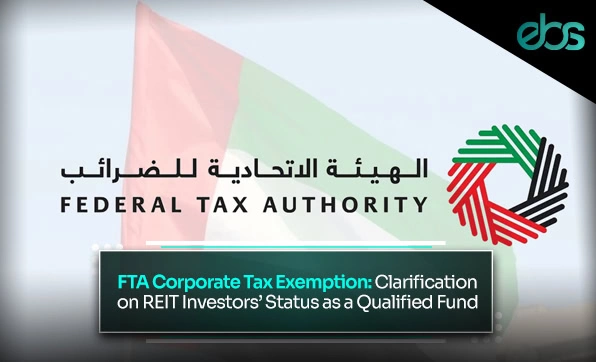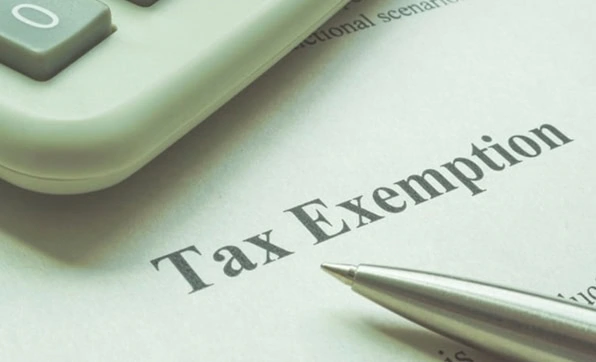The UAE Federal Tax Authority (FTA) has issued an important public explanation on May 6, 2025 about the corporate tax-treatment of investors at the Real Estate Investment Trust (REIT) which qualifies as an exempt fund under the UAE Corporate law. This explanation provides detailed guidance on how corporate tax applies to such investors, which aims to increase transparency and compliance within the real estate investment sector.
Background and Purpose of the Clarification
The FTA’s announcement addresses the tax treatment of legal persons-both residents and non-residents-investing in REITs that are exempt from corporate tax as Qualified Funds. These REIT corporate tax uae explains the income subject to corporate tax, the relevant tax periods, and the compliance obligations for both the REITs and their investors. The clarification also includes practical examples to help taxpayers understand their obligations and rights under the new tax regime, which took effect for tax periods beginning on or after January 1, 2025.
Key Highlights of the FTA Clarification
- Taxation of Immovable Property Income
Investors in a REIT that qualifies as a corporate tax exemption REIT must report 80% of the immovable property income of the REIT on a pro-rata basis. Immovable property income is defined as the net profit derived from rights in immovable property located in the UAE. This includes income from the sale, disposal, transfer of rights, direct use, leasing, or any other exploitation of the property. The income must be determined based on the REIT’s financial statements and applies to income fully owned and controlled by the REIT, either directly or indirectly.
- Distribution of Profits and Tax Implications
If the REIT distributes its immovable property income within nine months following the end of its financial year, and an investor has disposed of their entire ownership interest before receiving their share of dividends, that investor will not be subject to corporate tax on the immovable property income realized from the fund. This provision prevents investors from being taxed on income they did not receive due to the timing of their disposal of ownership interests.
- Legal Ownership and Tax Responsibility
For the purposes of UAE Corporate Tax Law, investors in a REIT are considered the legal owners of their ownership interests in the fund. This status means that the tax liability and benefits related to the REIT income flow through to the investors themselves, rather than being confined to the REIT entity.
- Avoidance of Double Taxation
To avoid double taxation, any profit distributions received by an investor who is a taxable person from the REIT are excluded from their taxable income, as the income would have already been attributed to them. Moreover, expenses incurred by investors in relation to their investment in the REIT are deductible, subject to the provisions of the UAE Corporate Tax Law. Gains or losses on the disposal of ownership interests in a REIT may be exempt if the conditions of the participation exemption are met.
- Tax Treatment of Investment Managers
Investment managers of REITs are subject to UAE corporate tax on the arm’s length management fees they receive. If an investment manager creates a permanent establishment for the REIT in the UAE and is not remunerated at arm’s length, the taxable income will be adjusted to include an arm’s length management fee. This ensures that management fees are taxed fairly and prevents tax avoidance through non-arm’s length transactions.
Compliance and Reporting Obligations
The FTA clarified that to maintain their status as a Qualifying Investment Fund exempt from corporate tax, REITs must provide their investors with all necessary information to calculate taxable income. This includes:
- The amount of immovable property income of the REIT.
- Confirmation of whether the REIT is a distributing fund for the financial year.
- The amount of tax depreciation deductions for each investment property.
- Details of any disposals of investment property for which tax depreciation was previously claimed.
Additionally, non-resident investors can appoint a tax agent, either directly or through the REIT or its investment manager, to assist in fulfilling tax obligations. Both the non-resident investor and the tax agent must agree to this appointment.
Implications for Investors and the Real Estate Sector
This FTA REIT clarification by the FTA provides much-needed clarity and certainty for investors in REITs in the UAE. By defining the tax treatment of income, distributions, and disposals related to REIT investments, the FTA helps investors understand their tax liabilities and compliance requirements under the corporate tax regime.
The pro-rata taxation on 80% of immovable property income aligns with the UAE’s broader tax framework, ensuring that investors contribute appropriately to the tax base while avoiding double taxation. The provisions for timely distribution of income and the ability to appoint tax agents for non-resident investors further facilitate smoother tax compliance and administration.
For the real estate sector, this guidance supports the growth and attractiveness of REITs as investment vehicles by clarifying tax obligations and reducing uncertainty. It also reinforces the UAE’s commitment to implementing a transparent and efficient tax system that encourages investment and economic diversification.
Conclusion
The FTA public clarification of Investors in REITs is an important step in the landscape by developing the UAE as a public explanation of FTA at corporate tax exemption. By expanding the tax treatment of real estate income, profit distribution, investment expenditure and compliance obligations, the FTA ensures that investors and REITs can navigate governance by corridor and clarity. This development not only promotes transparency and fairness in taxation, but also increases the status of the UAE as a competitive and investor -friendly market for real estate investment. Investors, fund managers and corporate tax professionals should carefully review the guidance of the FTA to ensure complete compliance under the new rules effective from January 1, 2025 and optimize their tax positions.
FAQs
What did the FTA clarify about REIT investors and corporate tax?
The FTA confirmed that investors in Qualified REITs may benefit from corporate tax exemptions.
What is a Qualified Fund under the UAE corporate tax law?
A Qualified Fund meets specific FTA criteria, allowing certain tax exemptions, including for REITs.
Are all REITs in the UAE exempt from corporate tax?
No, only REITs that meet the FTA’s Qualified Fund requirements are eligible for exemptions.
Who benefits from the REIT tax exemption?
Eligible investors in REITs classified as Qualified Funds benefit from the corporate tax exemption.


